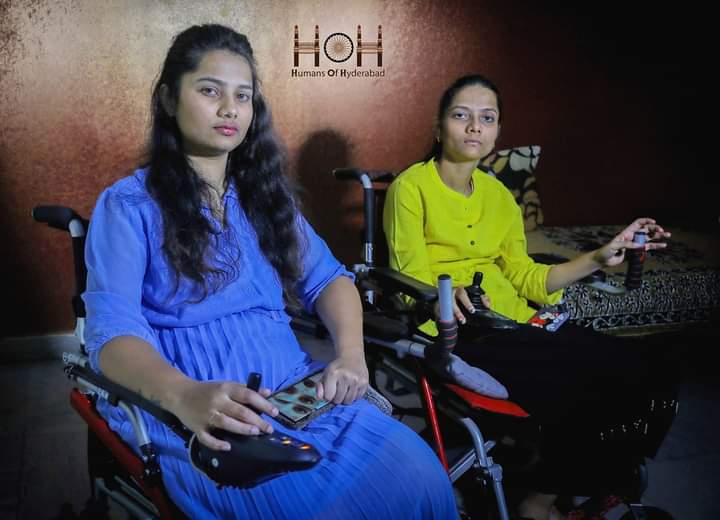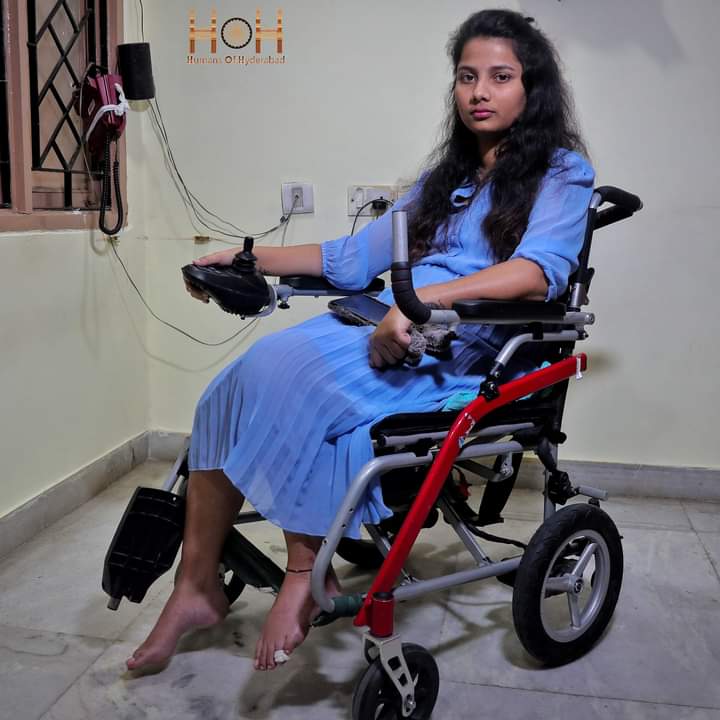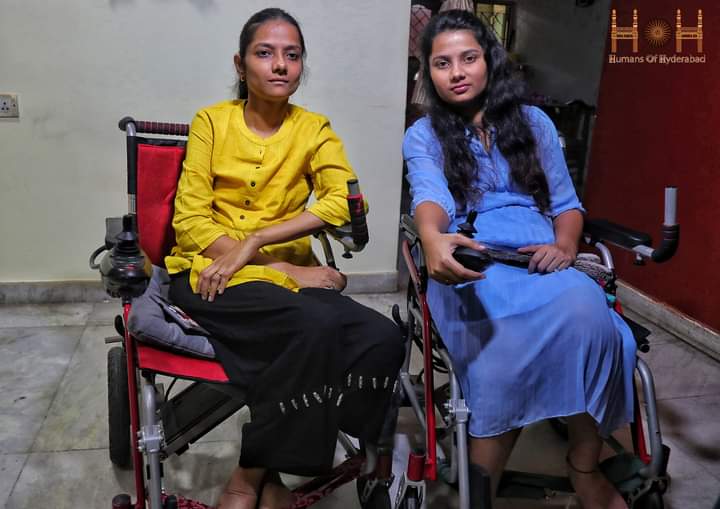“I was 12 years old when my sister was diagnosed with a rare neurological problem, something that was unheard of back then. Because of the limited resources in the year 2000, it was not easy to find a doctor who was fully aware of it either! Apart from the family doctor and a brother, nobody had a clue about it. Friedreich Ataxia (FA) is a progressive disorder resulting from the mutation of a gene locus. In this condition, loss of ambulation typically occurs 15 years after the onset of the disease. More than 95% of patients are wheelchair-bound by the age of 45.
In most cases, the problem is inherited from ancestors. However, there were no visible cases in the family. As the problem progressed, my sister had to discontinue college. A couple of years down the line, I happened to develop the same problem. I was 16 years old when my college professor mocked me for using the lift instead of taking the stairs. It continued, but I was adamant about graduating and wobbled my way to college, every day.
Most doctors we approached were unaware of the problem and instead got information from us. The most disheartening thing is that there is no proper ongoing research, at least here in India. We have formed a group along with other ataxia patients and have collected some data to help with the research, but there is no progress.
During placements at college, I made it to the final rounds of job interviews with several reputed MNCs but I would get rejected in the face-to-face rounds. I blamed my walk for it. When I was in college, I was against using a wheelchair but seeing my old parents struggle with my sister, I was compelled to give in. That was when my condition started to deteriorate.
Being a progressive disorder, my Ataxia kept growing and since 2016, I have been restricted to a wheelchair.
After my graduation, I applied for work-from-home jobs but they all required experience, so I gave up. From our own experience and from the stories we’ve seen and heard from people suffering from other rare disorders, we’ve realised that it’s not us who are disabled.

Rather, it is the infrastructure, that is disabled. I started working right after my B.tech. During the 4 years of my career as a freelance content writer, I was left unpaid or underpaid on many occasions. My sister and I worked hard to hone our skills and tried our best to search for work-from-home opportunities. But it’s only seasonal employment. We get lucky and find clients sometimes but other times we just write to stay motivated.
Now, we are a crucial part of a firm set up by one of my friends with Muscular Dystrophy, which is a similar problem. We aim to stand alone, without attracting pity. We seek employment opportunities and medical help. At the same time, I also work for a startup and the CEOs are kind enough to provide the writers with the option to work-from- home.I had also dreamt of pursuing my Masters in English, but I had to stop, owing to the difficulties of going to a college with poor infrastructure.
While I am not worried or under-confident because of my Ataxia, the poor state of infrastructure, lack of political policies, and the mindset of people towards the disabled, is a concern that doesn’t let me sleep. I have tweeted to both the local and central governments but there has been no action from their side.
Throughout the struggle that we have faced, my parents, family, and friends have stood by my sister and me like strong pillars. My parents are above 60 years old and have trouble with their own bodies. Having two children to take care of too, is unimaginable, but they are doing it with their brightest smiles. Our younger sister, who is in the US, has her heart here. She takes care of our needs and volunteers for the disabled in the US to make up for her lost time.
In the hope of an inclusive infrastructure, we are working towards establishing a rehabilitation center with homes, recreation and fitness centers where the differently-abled get the opportunity to stay fit and lead a happy life under one roof.

Today, I wish to say out loud that there’s some medicine to it! Yes, after ages of waiting, praying, and being hopeful, people with Friedreich Ataxia woke up to the news that Reata Pharma’s drug SKYCLARYS (Omavaloxolone) has been approved by the FDA! And the news coming on International Rare Disease Day was the cherry on top.
Though the medicine is not the ultimate cure for Friedreich’s Ataxia as it only slows down the progress, this sure will be the cornerstone for more to come and it does bring a ray of hope that there will be a solid cure in the near future. The drug is approved in the US for now, and for it to come to India, there have to be more trials, and for that to happen, we need medical and political intervention. For the trials to kick off, we need structured patient data and significant numbers so that the company would also be interested in investing.
But are we equipped for that? Well, no! It is after a lot of trials that patients with FA pushed AIIMS (Delhi) to start collecting patient data but the patients have to travel to Delhi, and logistics is an issue for most FA patients. So that eliminates most from submitting their details! So what’s the next possible step? Sending the reports to Delhi but again, this is only possible with the government’s support and financial aid.I have reached out to political parties, and media houses but there has been no response yet. Hoping that the government takes us seriously (at least for the upcoming elections) and tries to help us lead a better tomorrow!”
